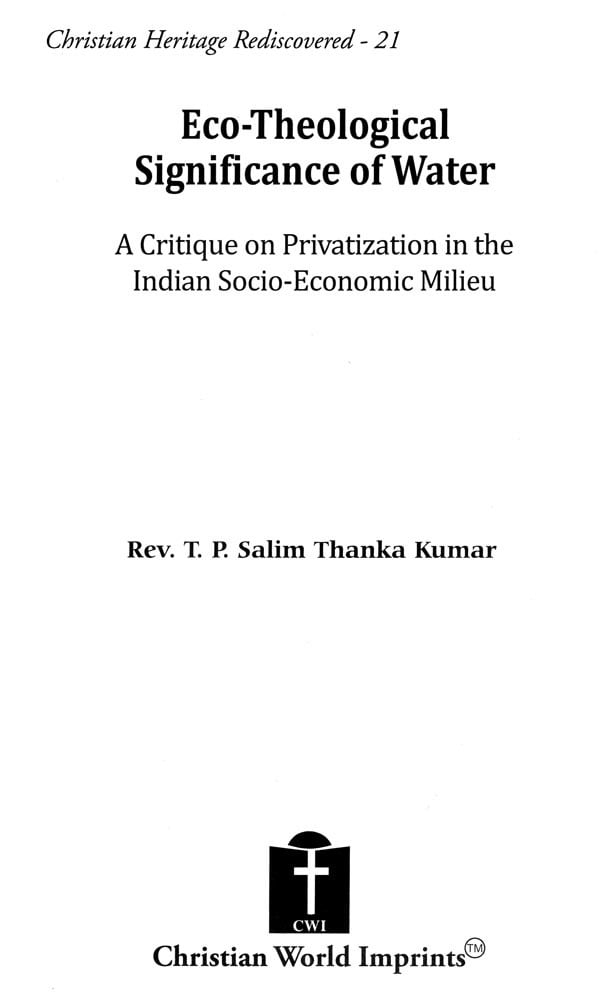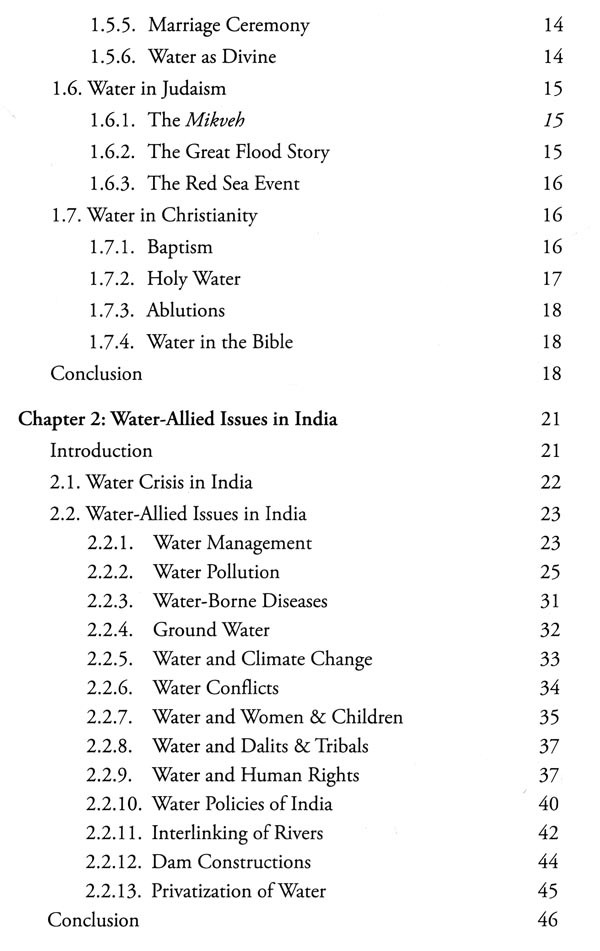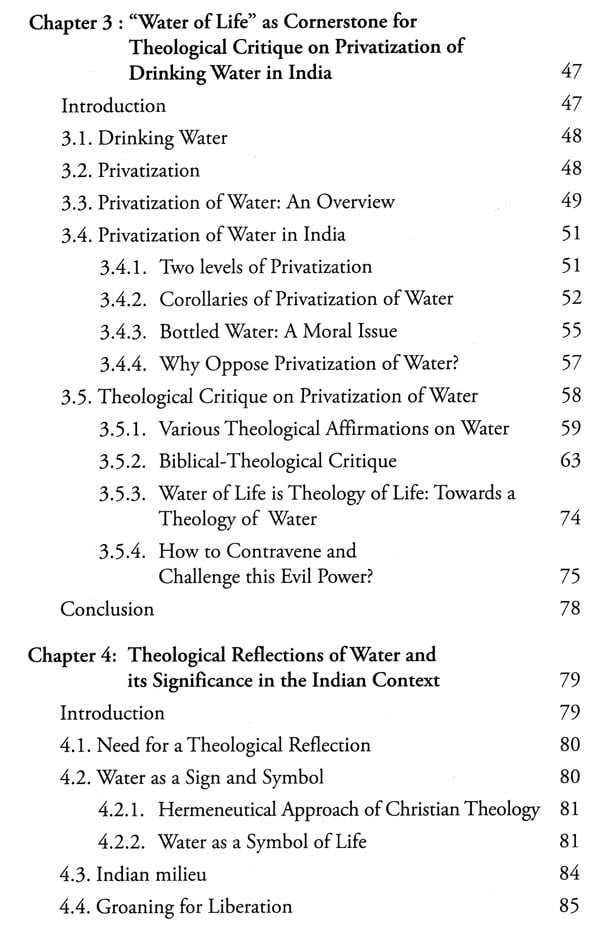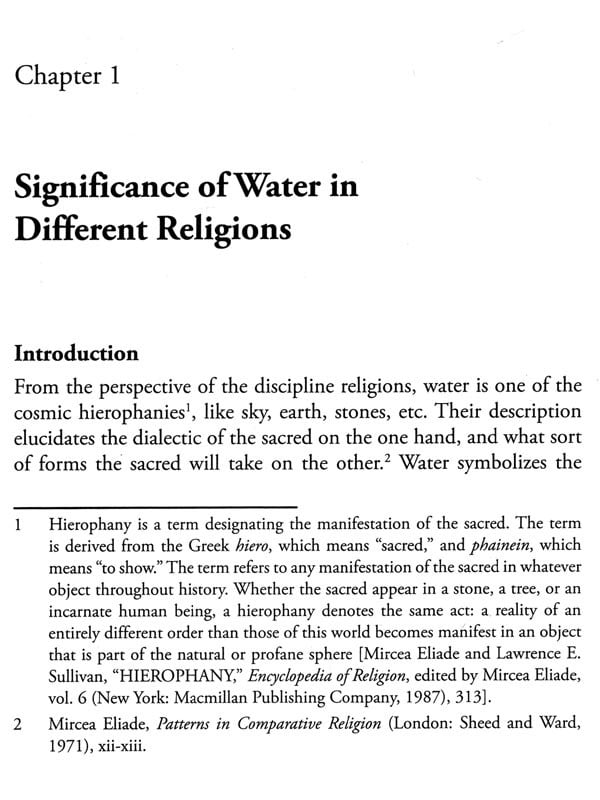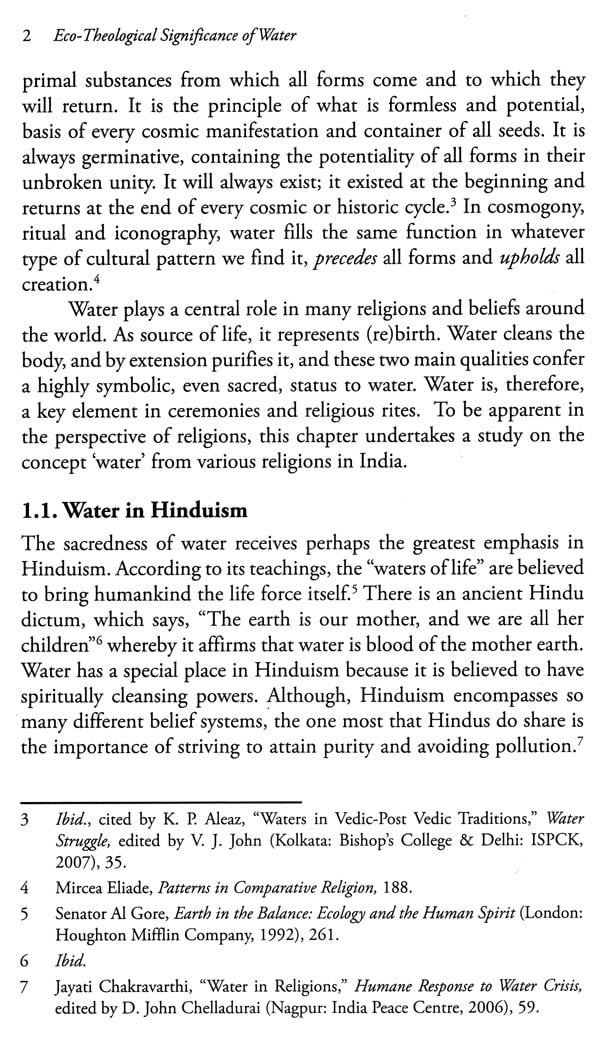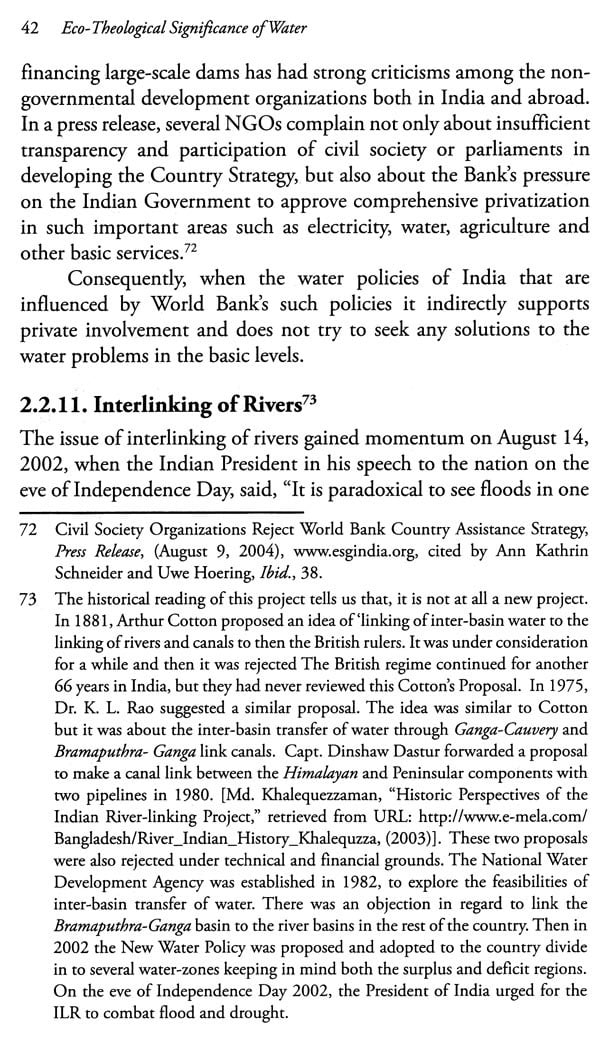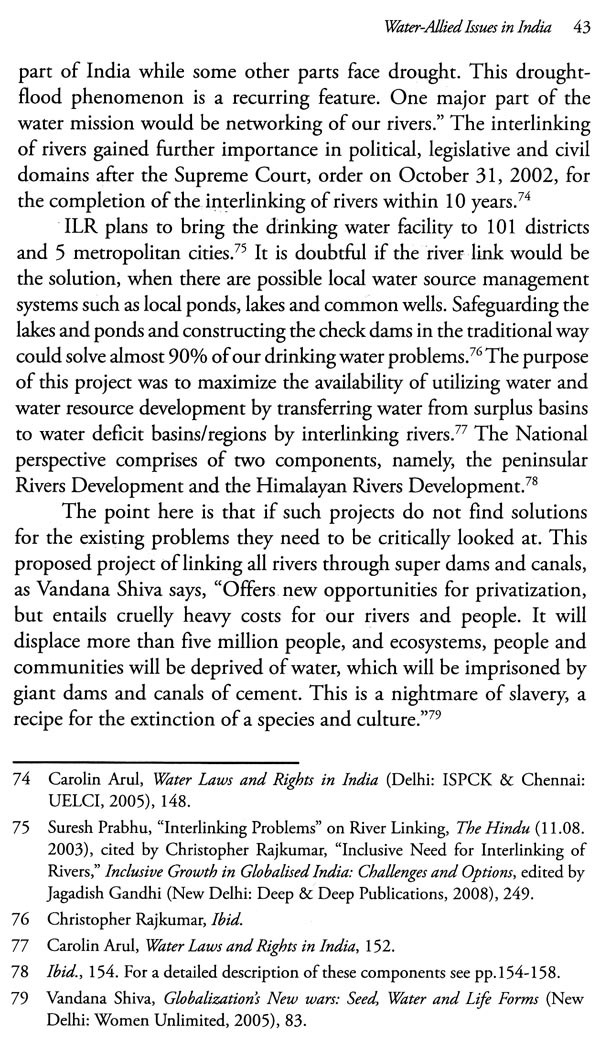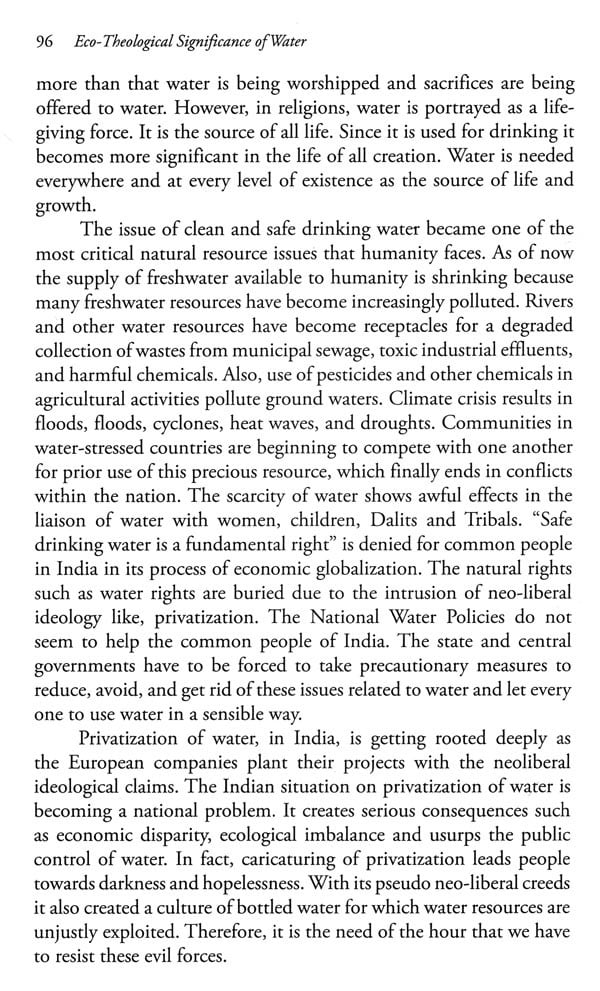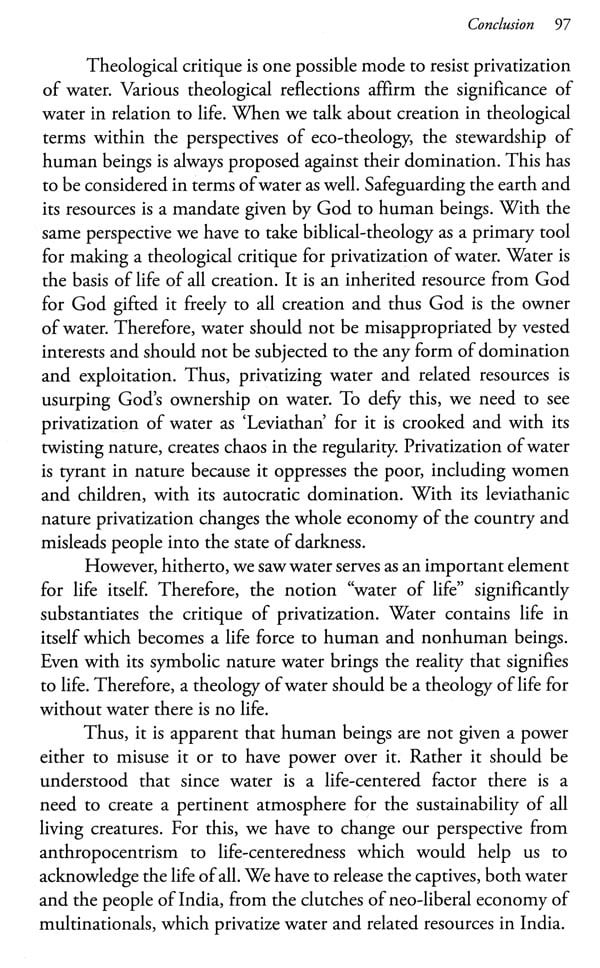About the Book The book carefully unpacks the hegemonic discourses that shield the ideology of neo colonialism deeply entrenched in the intentions of privatization of water resources. The author's sensitive and sustained critique of privatization of water unearths the pitfalls of water management in India. This intellectual work also undertakes a study on the significance of 'water' in various religions, such as Hinduism, Islam, Buddhism, Sikhism, Zoroastrianism, Judaism apart from Christianity. Major issues like water management, water pollution, waterborne diseases, ground water, climate change, water in relation to women and children, water in relation to dalits and tribals, privatization of water, and many more, have been dealt with, in detail.
There have been numerous research works on this subject, but the present one differs as theological critique on privatization of water being its main thirst. The biblical-theological discernment has been employed as a yardstick to make the critique stronger. This research formulates a comprehensive view of the problem enabling a critical response and making the Christian faith community realize the need to be responsible to defend water from the emerging jeopardy.
This book is grounded on a subject that needs immediate attention so as to secure the welfare of the most vulnerable communities in India. It has a prophetic vision which calls the Church, as a part of society, to respond vigorously in eradicating the evil forces of of water in India. It is meant for Ecologists, Socio-Economists, Christian Laity, Church Clergies, Religious Leaders, Policymakers, Researchers and Students, alike.
About the Author Rev. T. P. Salim Thanka Kumar is a Presbyter in Church of South India in the Diocese of Kanyakumari. He hails from the village Elanchirai of Kanyakumari District. After completing his school education he has obtained his Bachelor degree in Economics from (Nesamony Memorial Christian College, Marthandam) Manonmaniam Sundaranar University, Tirunelveli. After his B.A. he obtained B.D. from the United Theological College, Bangalore in 2004 and gained the degree from the Serampore University. He has completed his M.Th. in Christian Theology at the Tamilnadu Theological Seminary, Arasaradi, Madurai and obtained the degree from the Serampore University in 2009. He has also obtained his M.A. degree in Sociology from Manonmaniam Sundaranar University, Tirunelveli in 2012. He has joined in the pastoral ministry in 1998 and got his presbyter ordination in 2010. He is interested in applied and in the public theological discourse.
Foreword I'm delighted and pleased that my former student, now a public theologian, Salim Thanka Kumar's work on water and its privatization is being published. I am proud to have been asked to provide a Foreword to this work. In a context where one of the most precious and vital resources that should be available freely to all people, the commercialization of water, water production and distribution, coupled with age-long discrimination in terms of so-called purity and pollution not only "muddy the waters" but deprive vast sections of our society of the possibility of healthy living and human dignity, when they are forced to scrounge for this resource and contend with the barricades, both metaphorical and real, that control access to this life-element, this work is both opportune and crucially important.
Introduction Life, the way we know it, is not possible without water. Water is now being increasingly referred to as the "blue gold' in analogy with crude oil, which is termed as 'black gold." Water is an essential source of life. Without which the earth is nothing but an arid desert, a land of hunger and thirst where human beings and beasts are doomed to death. Water is directed towards the earth for common use by all, including human and other living creatures. Human beings categorize water based on its usage in the order of priority such as: drinking water, livelihood water, industrial water, and leisure water.
**Contents and Sample Pages**
